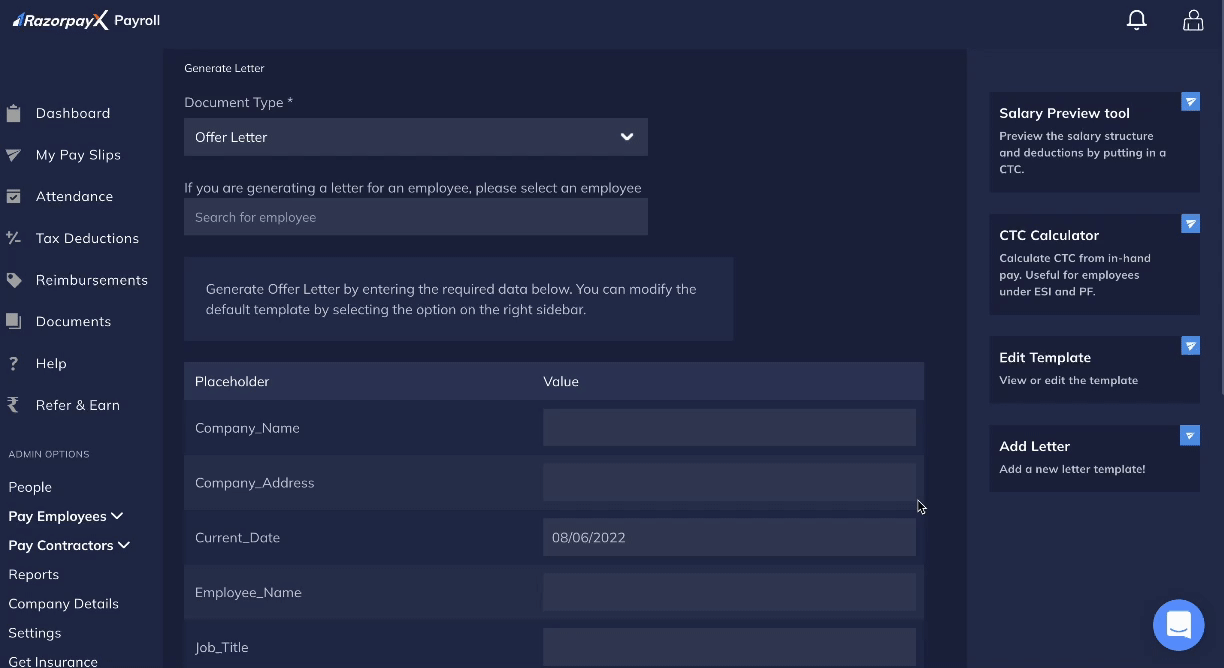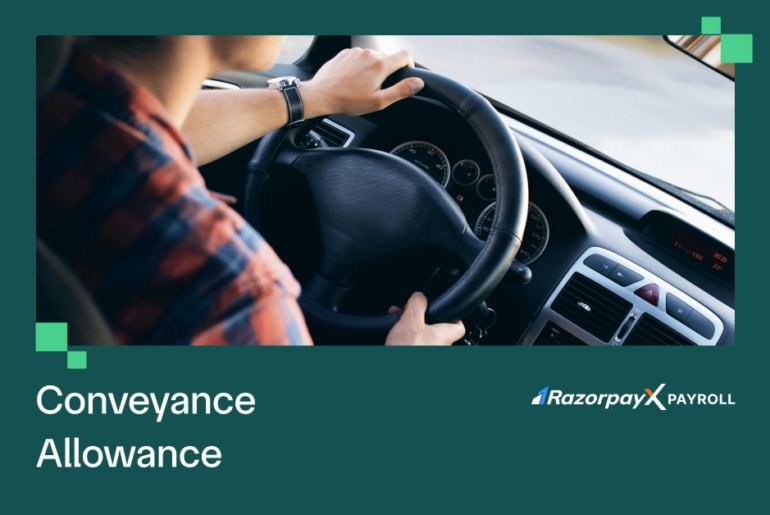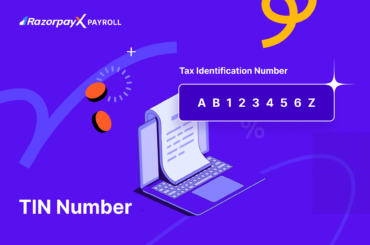Table of Contents
What is Conveyance Allowance?
Conveyance allowance is allowance offered by employers to cover the cost of travelling from home to the workplace. It is offered by companies that do not provide transportation facilities. It falls under the purview of CBDT (Central Board of Direct Taxes).
CBDT is a statutory body that reports directly to the Revenue Department of the Government of India. It is responsible for revising the rules associated with conveyance allowance periodically.
Conveyance Allowance Features
- Eligibility: Conveyance allowance is payable to salaried employees to compensate them for the expenses they incur in traveling to and from their workplace.
- Exemption limit: The conveyance allowance exemption limit for salaried individuals is Rs 1,600 per month or Rs 19,200 per annum. This exemption is available under Section 10(14)(ii) of the Income Tax Act, 1961.
- Calculation: The conveyance allowance is calculated on the basis of the actual amount of conveyance allowance received from the employer. If the actual amount of conveyance allowance exceeds the exemption limit, the excess amount is taxable.
- Documents required: To claim conveyance allowance exemption, salaried individuals must submit the following documents along with their income tax return (ITR):
- Form 10D: This form must be filled out and signed by the employer. It must contain information such as the employee’s name, PAN, and the amount of conveyance allowance paid during the financial year.
- Documentary proof of expenditure on conveyance: This could include receipts for fuel, tolls, parking, and other travel-related expenses.
- Taxability: The conveyance allowance exemption is available only to salaried individuals. Self-employed individuals are not eligible for this exemption.
Conveyance Allowance Exemption from Tax
Conveyance allowance exemption from tax allows employees to claim a certain amount of their conveyance allowance as tax-exempt income.
The exemption limit for conveyance allowance is Rs 1,600 per month or Rs 19,200 per annum. This means that employees can claim up to Rs 1,600 per month or Rs 19,200 per annum of their conveyance allowance as tax-exempt income.
To claim the conveyance allowance exemption, employees must submit Form 10D along with their income tax return. Form 10D must be signed by the employer and must contain information such as the employee’s name, PAN, and the amount of conveyance allowance paid during the financial year.
Employees must also maintain documentary proof of their expenditure on conveyance, such as receipts for fuel, tolls, parking, and other travel-related expenses.
The conveyance allowance exemption is available only to salaried employees. Self-employed individuals are not eligible for this exemption.
How to Calculate Conveyance Allowance?
Conveyance allowance is calculated as a percentage of basic salary. Companies can offer any amount of conveyance allowance. The tax exemption limit for conveyance allowance is Rs 1,600 per month. Any amount exceeding this limit becomes taxable.
Let us understand with an example. Suppose ABC Company offers its employees a special allowance of Rs. 6000 monthly. This amount is entirely taxable. Now, an employee can consider Rs. 1,600 from Rs. 6000 as his conveyance allowance and seek tax exemption for it. However, it is a good idea to consult a tax expert before claiming tax exemptions for conveyance allowance.
Conveyance Allowance Special Considerations
Listed below are the essential things to remember:
- The amount provided as conveyance allowance varies from one company to the other. But, the exemption limit remains the same.
- Salaried persons do not need to provide special documents to receive a conveyance allowance.
- This allowance can fall under special allowances.
- If employers provide transportation facilities, then a conveyance allowance won’t be provided.
- The tax exemption limit for visually impaired or physically disabled employees is set at Rs 3,200 per month.
- UPSC members, or members of the United Public Service Commission do not have to pay tax as per Section 10(45) of the Income Tax Act.
- Government employees receive a consolidated travel allowance for work-related transportation facilities. It substitutes every allowance for transit required for the official to carry out his duty effortlessly.
Travel Allowances for Central Government Employees
Central government employees are eligible to receive allowance to pay for travel when on duty. Below is the allowances per km travelled.
| Average distance covered in a month on duty | Allowance for personal vehicles | Allowance for other travel modes |
| 201 to 300 km | Rs 1,680 | Rs 556 |
| 301 to 450 km | Rs 2,520 | Rs 720 |
| 451 to 600 km | Rs 2,980 | Rs 960 |
| 601 to 800 km | Rs 3,646 | Rs 1,126 |
| 800 km+ | Rs 4,500 | Rs 1,276 |
Automate Complex Payroll Calculation
RazorpayX Payroll is an all-in-one payroll software that automatically bifurcates CTC into basic, HRA, special allowance, and more.
 All you have to do is just set a date, and your employees get paid on time. Yes, we calculate and disburse salaries into employee bank accounts in just 3 clicks.
All you have to do is just set a date, and your employees get paid on time. Yes, we calculate and disburse salaries into employee bank accounts in just 3 clicks.
Other features of RazorpayX Payroll include:
- Automatic statutory compliance payments and filings like PF, PT, and TDS
- Salary calculations and transfers
- Leave and attendance system
- Reimbursements requests, approval and payment
- Multiple HR letter generation like offer letter
- Integrated with leading software like -Plum, Zaggle, Freshteams, and more
FAQs
Will an employee receive a conveyance allowance if they opt for a company-provided transportation service?
No. Employees will not receive a conveyance allowance if companies provide transportation facilities.
What are other allowances that employers pay?
Some of the other allowances paid by employers are as follows: Medical allowance House Rent Allowance (HRA) Leave Travel Allowance (LTA) Dearness Allowance (DA)
Is there a maximum limit to the amount that can be provided as a conveyance allowance?
Currently, there is a standard exemption of Rs. 50,000 on the gross salary as per the latest rules by the Income Tax department of India. There is no separate exemption for conveyance allowance. If any company provides conveyance allowance, in that case, ESI calculation is done excluding it.





